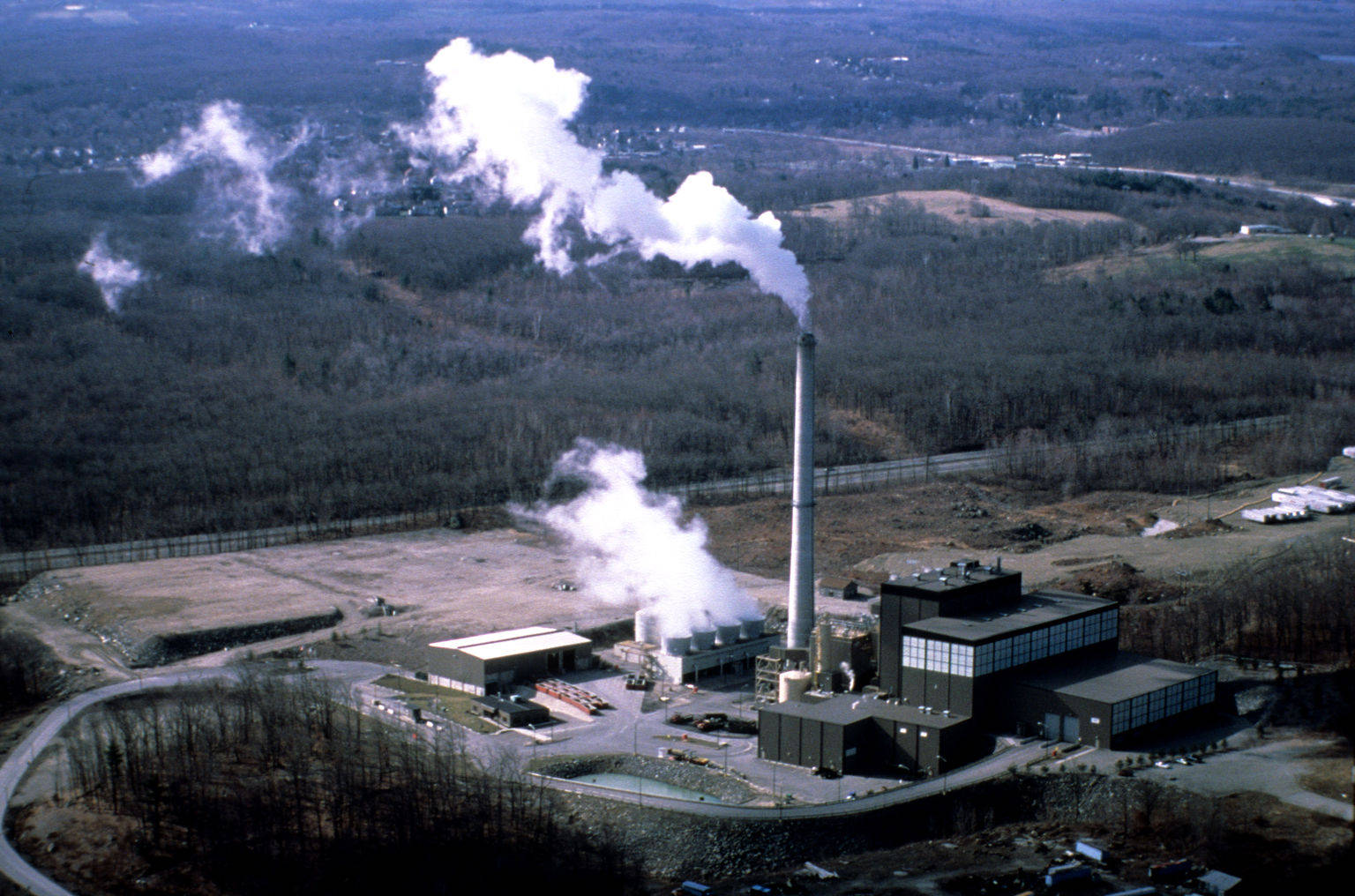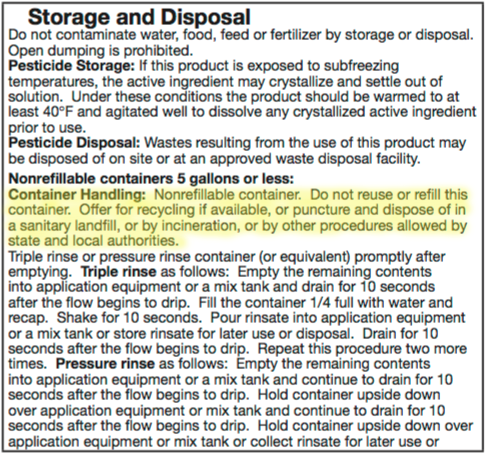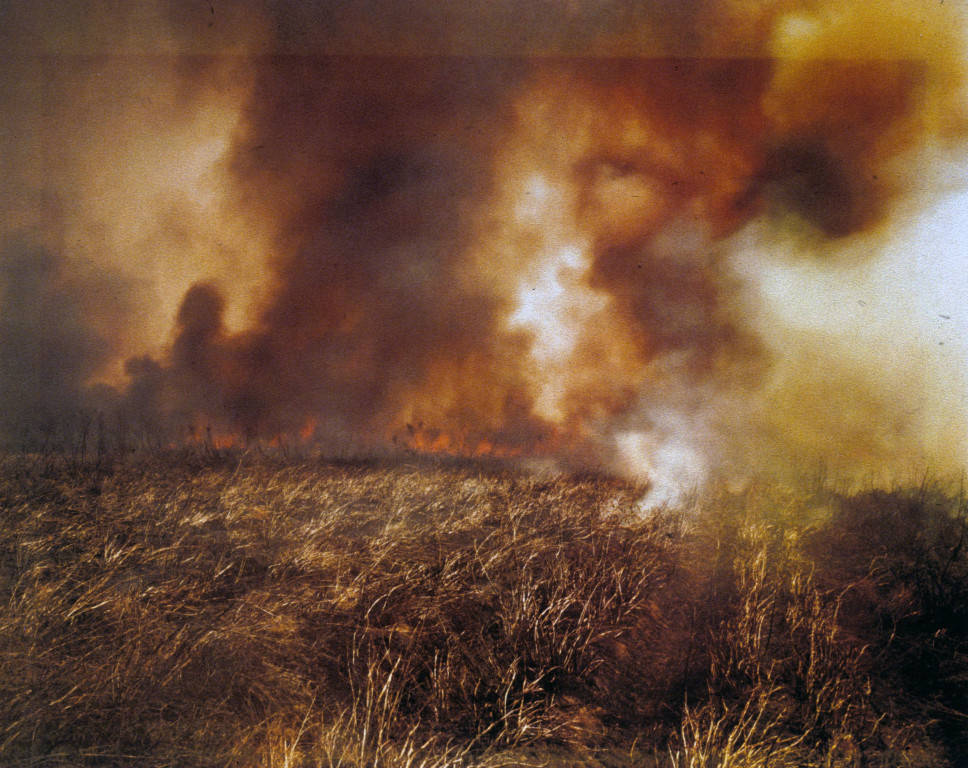Options to Weigh First
When disposing of empty pesticide containers, consider these preferred options that are environmentally friendly:
- Seek out recycling providers first. Read about recycling containers.
- If recycling is not an option, try to landfill empty, properly rinsed containers.
Burning vs. Incinerating: What's the Difference?
Burning and incineration are two very different processes:
- Incineration involves destroying materials at very high temperatures for a specific period of time, depending on the material. The process is carried out in contained systems that can reach up to 2,500° F. Incinerators also usually filter any smoke or debris created by the process so that it isn't released into the environment.
- Open burning, such as in an outdoor burn barrel, occurs at temperatures far lower than incineration. Because burning does not filter byproducts out of the air, it is more harmful to the environment than incineration. Although it is actually banned in most states, Nebraska law includes avenues for legal open burning (see below).

**Unfortunately, there is only one hazardous waste incinerator in Nebraska (in Kimball). Because of this, incineration is not a viable disposal option for most in the state.**
Legality of Burning
Laws related to open burning vary depending on the specific county or municipality within Nebraska.
Best practice:
You should ALWAYS talk to your local fire department before burning containers. This will clear up any issues regarding legality. The fire department can also advise you on environmental conditions and safety.
Generally, two permits are required to perform an open burn:
- A permit from the local fire chief
- A permit from the Nebraska Department of Environment and Energy (NDEE)*
*However, Form #: 07-279 states that a permit from NDEE is NOT NECESSARY for the burning of pesticide containers.
NDEE also defines open burns (referred to as open fire) in Form #: 07-279.
Label Language

Before you can even consider incinerating or burning containers, you must first check the product label(s) to see what is allowed by the manufacturer. Look for label language such as:
...dispose of in trash or in a sanitary landfill or by incineration or, if allowed by state and local authorities, by burning. If burned, stay out of smoke.
...dispose of in trash or in a sanitary landfill or by incineration. Do not burn, unless allowed by state and local ordinances.
...dispose of in trash or in a sanitary landfill or by incineration.
Other Considerations
Container burning must occur on the property where the product was applied and must be performed by the owner of that property. This means that co-ops cannot collect containers and burn them.
Be aware of your surroundings—burning has the potential to be a nuisance to others.
Use a screen to prevent the spread of embers. See Building a Top Screen for a Burning Barrel by the Nebraska Forest Service.
Burning could pose health risks or environmental hazards due to fumes from burning plastic, pesticide residue, etc. Reduce the risk of these problems by ensuring the containers are completely emptied and properly rinsed prior to burning.

Additional Resources
Nebraska Department of Environment and Energy
Contact List for Local Fire Departments/Chiefs in Nebraska – click on the link in the first paragraph